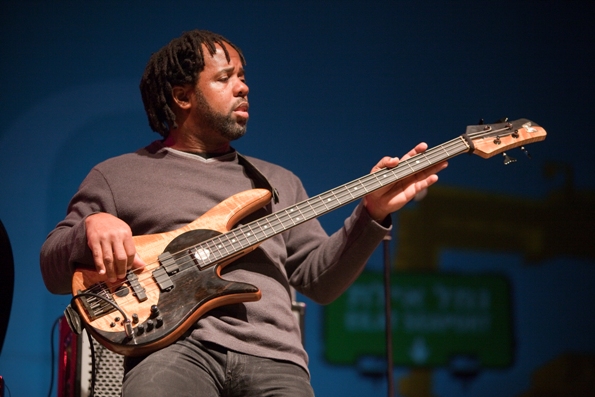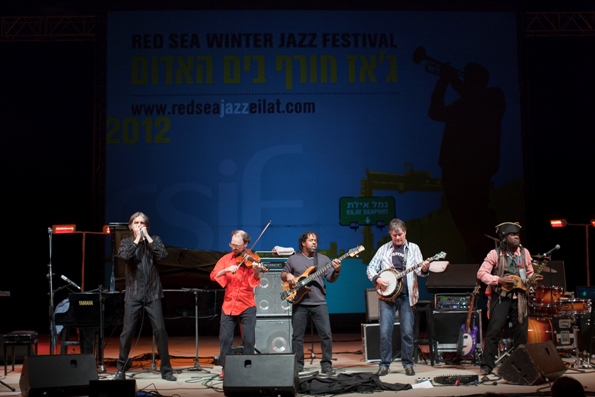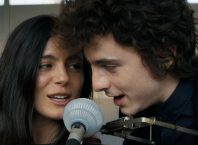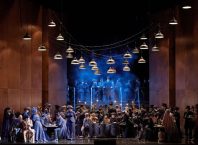
Despite his five Grammies, three-time title of “Bass Player of the Year” from Bass Player magazine, and superstar status both as a solo artist and as the original bassist for Bela Fleck & the Flecktones, Victor Lemonte Wooten is just a down-to-earth dude who loves what he does. The youngest of five boys, including the Flecktones’s drumitar-playing ‘Futureman’ (Roy Wooten), Victor began his musical career at the age of five. Spiraling into the international music scene even before graduating high school, Victor’s skills as an electric bassist have translated into six solo albums, fourteen Flecktones albums and countless collaborations and appearances.
This year’s Winter Red Sea Jazz Festival marks the Flecktones’s Israeli debut as a reunited ensemble. After an electrifying performance accompanied by deafening cheers, stomping and shouts for more, I had the pleasure of chatting with the chilled out Victor about his style, his unique musical language and his fantasy superpower.
Gili Karev: So what’s it like being back together again after twenty years of separate collaborations?
Wooten: Wow, it’s like a family reunion. This is the first time we’ve all been together since Howard (Levy) branched out eighteen years ago. Being together is just natural for all of us; the original Flecktones is our foundation. We’re family.
Karev: How do you feel your individual developments add to the new dynamic?
Wooten: We’ve all developed simultaneously but apart; have all honed in on our own musical styles as both individual artists and though the Flecktones. Every one of us is collaborating with different people, adopting new ideas and influences. When we come together it becomes this mixture of all of our individual ingredients, more diverse and interconnected than ever.
Karev: What’s unique about ‘Rocket Science’ (The Flecktones’s latest album, the first in seven years)? What fueled its creation?
Wooten: ‘Rocket Science’ is our resolution to re-create our original musical process – one that provides each member with his own creative niche and the power to branch out from there. The goal of ‘Rocket Science’ was to keep going where we left off, not to return to nostalgia. More to join forces through all of our ideas and experiences and make something completely new.

Karev: What would you say your music is about?
Wooten: I get asked that a lot, and every time I find myself answering a little differently. I suppose my music is about words, about communicating. Everything you say or think or do comes from some impulse, somewhere in your heart. These thoughts and words penetrate your life in some way all the time. It’s the same for me, except that my medium is music.
Karev: I feel like every form of communication sends some sort of message, be it words or gestures or even clothing. What’s the message you’re trying to send?
Wooten: It depends on the situation, really. Sometimes when everything is going really well I don’t think of anything in particular, don’t try to place any specific message in my work. The music comes to me and I find my fingers doing the talking for me. If there’s a good vibe between me and the crowd then we begin communicating, understanding each other through an invisible thread of thoughts and feelings. Every listener may feel something different, be understood differently. I allow it to just come to me.
Karev: Most of your music is improvised then?
Wooten: It’s a combination. Most of it is improvised within a semi-structure or format, but when we get into it we just sort of let go, let the beat take us wherever it takes us.
Karev: Do you think music has the power to free your mind?
Wooten: Absolutely. Music is a freedom of the mind. That’s its goal. The question of being freed comes from the listener just as much as the performer – you have to want to be freed and be open to the possibility of musical liberation. Sometimes I’ll be playing and I’ll look at the audience and see people really into it, really getting me, and I know we’re both in a process of the freedom of the mind from all generic forms of communication and convention.
Karev: If you could have any superpower, what would it be?
Wooten: I think I’d want the power to free minds. The ability to open people to new experiences, to new realms of reality without constraint. To be able to understand the world and to inject good in everything around us. So actually, I’d want the superpower of understanding. Understanding all differences, all mentalities, all methods of mental freedom. To understand myself, my place in the world and all the good I could do for those around me. The world needs good people.
Karev: A true statement. It’s been great chatting with you. I’ve been a huge fan since the first time I saw you play nearly ten years ago, when I was barely a teenager.
Wooten: You’re so young! I’ve been playing with Flecktones since 1987, probably the year you were born. But you obviously have good taste. Thanks, and enjoy the rest of the show.






BRILLIANT!!!! Felt like I was there, listening in on the conversation.
Great interview. The interviewer really got the essence of the band and the players. I felt like I was there.
Gili you jazz-fiend! Keep it up!
Comments are closed.